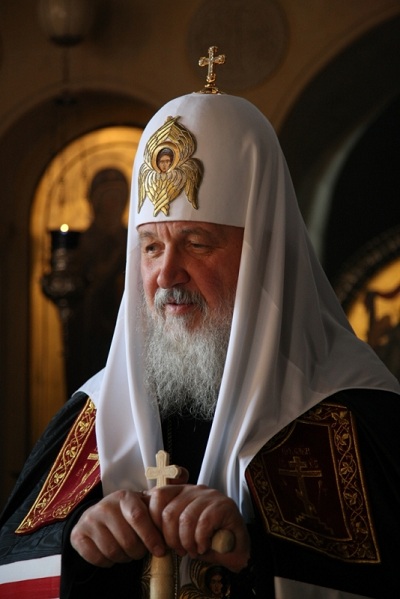 In the Name of the Father, and of the Son, and of the Holy Spirit!
In the Name of the Father, and of the Son, and of the Holy Spirit!
Fasting is a means by which we can truly affect the condition of our souls, because through abstinence from food, amusements, and various kinds of temptations, we train our will and elevate our feelings. Another special means of influencing and elevating the human soul is prayer. St. Theophan the Recluse, speaking of prayer, said: “The entire meaning of prayer is contained in the words ‘Lord, have mercy.’” When we mention these words, we think that we are asking the Lord not to punish us. However, the word “mercy” contains a much more significant, broader sense than simply a request for clemency.
Of course, when we turn to God asking for mercy, we are also asking that our sins, iniquities, and uncleanness be forgiven. But in the words “have mercy” there is also an appeal that He bestow His mercy upon us. God is not only able to punish us for our transgressions, but by His love to grant us His mercy, grace, and power.
If someone prays, then he is truly religious. If he calls himself a believer and is even convinced of the existence of God as a Higher Power, but does not turn to God in prayer, then this believer is not religious. It even happens that fairly churchly people stop praying. They are so accustomed to their churchliness that living prayer as communion with God disappears from their lives. It happens that even some clergymen, celebrating the Divine services from memory, do not pray in their hearts. If someone stops praying, he stops leading a religious life. Turning to God means sensing His presence in our lives, like the ancient prophets, about whom it is said that they walked before the face of God.
What does it mean to walk before the face of God? It means sensing God’s presence, recognizing that God is near. And if God is near, then how can we insult God, how can we perform that which is contrary to God? If God is near, then we can not only turn to Him constantly, but also try to build our lives so that the Divine eyes would always be filled with mercy and love.
How can those who do not know how to pray learn how? Today many people go to church and are turning to God, but they do not all know how to pray. There are circumstances in which even people of little faith pray, namely when they find themselves in difficult life circumstances. As war veterans say, during an attack even atheists pray. When there arise despair and the feeling that it is impossible to overcome difficulties on our own, then we easily address words of prayer to God. This also happens when we turn to a doctor and hear the terrible words of an incurable diagnosis. Then people pray, finding the words, and do not need to be taught how to pray. It is enough for us to overcome our hardships and receive healing, for our connection with God and prayer again to be ruptured.
The skill of prayer is one of the most important ascetic activities. We need to pray with the words of prayer, if we know them, as well as with simple words; we need to pray not only in the morning and evening, but also repeatedly throughout the day, if only turning to the Lord for a moment. Stepping outside, we need to make the sign of the cross, because modern streets are not without danger for human life. We might encounter a bad person and face difficult circumstances. When we take our first steps at the beginning of the day, we turn to God in prayer to call down His blessing.
A monastic tradition existed to dedicate every third hour to prayer. Hence the Hours in the Church’s Typikon: the Third, Sixth, and Ninth Hours, along with other divine services. In the conditions of modern life, it is not possible to attend services every two or three hours. But to ask for God’s help regularly, to cry out to the Lord, to thank Him for gifts received, simply to remember God – this, too, means sensing God’s presence in our lives.
Prayer in church is a special school of prayer. Today we stood through a long service and heard many psalms and hymns, but the human mind is arranged in such a way that following the words of prayer continuously is not possible. We need to train ourselves to grasp what is spoken in church. But even if we depart in thought from prayer due to our weakness, we are still in church, in the grace-filled atmosphere of the prayer of others and under the constant influence of Divine grace. This is why prayer in church has special meaning, significance, and power: For where two or three are gathered together in My name, there am I in the midst of them (Matthew 18:20). Fasting and prayer are great means of elevating the soul, overcoming sin, and changing our inner condition. It is especially fitting that we make use of these means during Great Lent, that we might change our inner worlds and become closer to God. Amen.
Delivered on March 3, 2009, at the Conception Stavropegial Convent in Moscow



















